2023 Taipei Arts Festival - Dancing Ecosystems
The pandemic taught us that humankind has moments when things become ineffective, fail, and cease to function normally. The “nature” and “normalcy” that we take for granted are nothing more than social constructs shaped by historical processes. Now that the old order has been overturned, in this new normal what is the philosophy of artistic action? When human activities come to a halt, how can we get everything moving again? As the movement of people and goods resumes post-pandemic, the Taipei Arts Festival is keen to advocate for a “non-humancentric” ecological mindset that repositions humanity within various non-human spaces, rather than against them. With this curated exhibition, we invite visitors to reimagine the ecosystem through the lens of biodiversity, as art is used to explore the relationship between thriving and surviving in the oceans, lands, cities, and communities, and all the living things they contain. With this event, we aim to push further thinking on the agency of all living beings in this era, the dialogue between them, and the larger ecosystem. The “Concert for Plants” series helps us to learn from plants. Audiences are invited to bring their potted plants to the rooftop garden of the Taipei Performing Arts Center, where artists create music for them and stage intimate conversations with them. As we listen to the plant choirs, we immerse ourselves in the sensory world of flowers and trees in a showcase of cross-species communication. Looking at the relationship between humans and nature from the perspective of the oceans is the 2019 La Biennale di Venezia Golden Lion Award-winning interdisciplinary opera, “Sun & Sea” (太陽與海), in which we see human leisure activities from a God’s-eye view. Australian-Tongan artist Latai Taumoepeau presents the performance art piece “Ocean Island Mine” (海洋島嶼礦山) as a sacrificial offering to melting icebergs, drawing inspiration from the cosmology of the indigenous people of the South Pacific. “The Rite of Lobster” (脫殼), a theatrical installation by director Yu-Dien Chen (陳煜典) and artist Cheng-Tsung Feng (范承宗), re-places seafood into an oceanic perspective, showing how lobsters, which were once thought to be immortal, fight to survive, thus blurring the boundaries between exhibition, performance, and participatory art. Using theater as a dialectical approach to the Anthropocene, “SUPER”, by choreographers Yu-Ju Lin (林祐如) and Hsiao-Tzu Tien (田孝慈), delves into bodily allegory and landscapes in the context of extreme climate, social challenges, and species extinction. French choreographer Xavier Le Roy and Hong Kong artist Scarlet Yu’s (余美華) “Temporary Title, 2015 (Taipei 2023)” opens up an ecological exploration of naked terrains and expanded choreography between humans, animals, minerals, and machines. Director Ming-Chen Lee (李銘宸) and visual artist Jr-Shin Luo’s (羅智信) “Louver/Shutter/Blinds/Hundred Leaves” (百葉) reflects on human-made light and questions the fleeting nature of theatrical landscapes. Bio-artist Kuang-Yi Ku (顧廣毅), British designer Robert Charles Johnson, Thai artist Henry Tan (陳業亮), and Indonesian artist Elia Nurvista present the third stage of their interdisciplinary art project “The Bat Banquet” (蝙蝠盛宴). Together with the dance piece “Shattered Moon” (往月的方向去) by Japanese choreographer Toru Shimazaki and Dance Forum Taipei, it offers a radical response to human fears of viruses during the pandemic, as it explores the ebbs and flows of identity politics between different species and races. Ecological thinking simultaneously reconfigures and reimagines the process of writing history and local memory, allowing us to enter the multiple and heterogeneous Global South. Opening the festival is South African choreographer Robyn Orlin’s “We wear our wheels with pride and slap your streets with color… we said ‘bonjour’ to Satan in 1820” (我們腳踩無敵風火輪,五光十射你的路,與魔鬼共舞在1820) and Congolese director Faustin Linyekula’s “My Body, My Archive” (我的身體.我的檔案), both of which challenge the conventional worldview of the powers of the northern hemisphere and provide an opportunity for dialogue between East Asia and Africa. “Speak, Hong Kong!” (說吧,香港!), by director Snow Huang (黃思農) and Hong Kong poet Wai Tong Liu (廖偉棠), and “Falling into Dreams” (夢廻春閨) by program organizer Fang-Yi Lin (林芳宜) and director Chia-Ming Wang (王嘉明) use the format of the poetry recital to reinterrogate war, human fragility, and the clamor of “disappeared” voices. “My Dear”, by choreographer Hsiao-Mei Ho, and “School of the Underworld” (鬼島學苑進修部), by playwright Yu-Hsuan Chou (周玉軒) and director Pai-Ang Hsu (許栢昂), create a third space where yin and yang flow. Lastly, “Pump it! Shih-Lin! 2.0” dances through the narratives of Shilin from the 1930s until the present day, offering a grand dance party to Shilin’s history. Taking the keyword “ecology” as its starting point, over the next three years, the arts festival will strategically plan for the city’s artistic and ecological knowledge production, using artistic performance to reimagine Taiwan’s local and oceanic politics and explore more possibilities for dialogue with the world. “Think Bar” will focus on presenting a series of lectures, forums, workshops, and other public engagement and learning spaces hosted by artists and curators from Taiwan and abroad. The new project “Populous Archipelago” (流行群島) will bring international curators and artists each year to carry out residency research, linking Taipei Arts Festival to other art festivals in the Asia-Pacific region through cultural action, dialogue, collaboration, and co-creation. “Dancing Ecosystems” will be a network of ecological interactions where members mutually support one another. This year’s Taipei Arts Festival invites you to experience and embrace the diverse and vibrant interactions and performances between humans and non-humans, showcasing the myriad forms of life.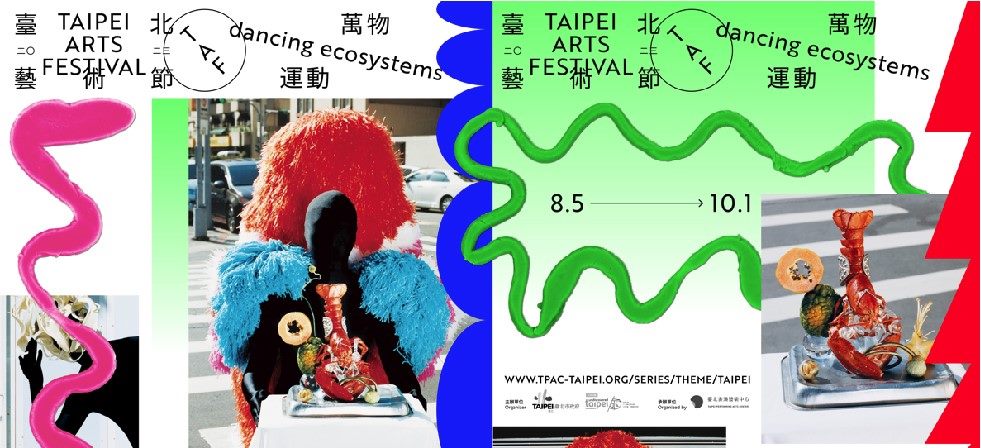
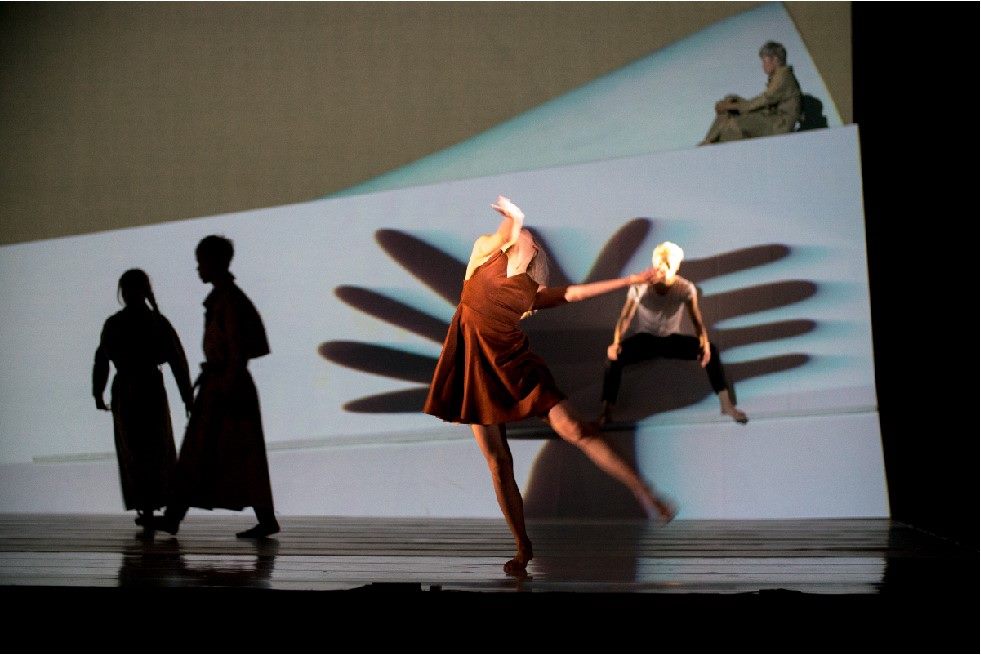 Photo: “My Dear (親愛的)”, courtesy of Hsiao-Mei Ho (何曉玫), MeimageDance
Photo: “My Dear (親愛的)”, courtesy of Hsiao-Mei Ho (何曉玫), MeimageDance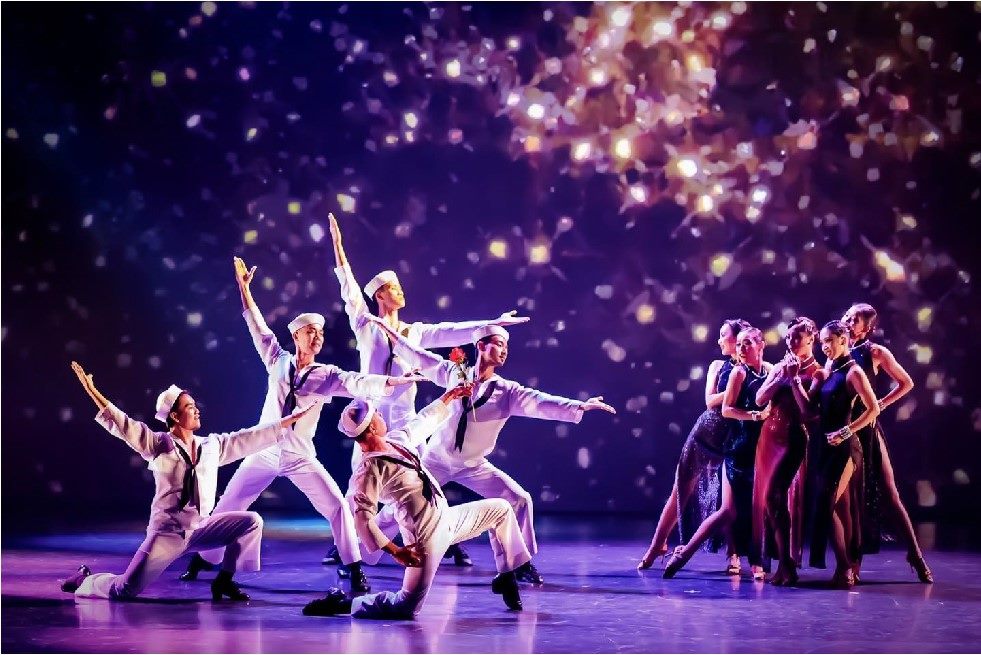 Photo: “Pump it! Shih-Lin! (飆舞士林)”, courtesy of Taipei Performing Arts Center
Photo: “Pump it! Shih-Lin! (飆舞士林)”, courtesy of Taipei Performing Arts Center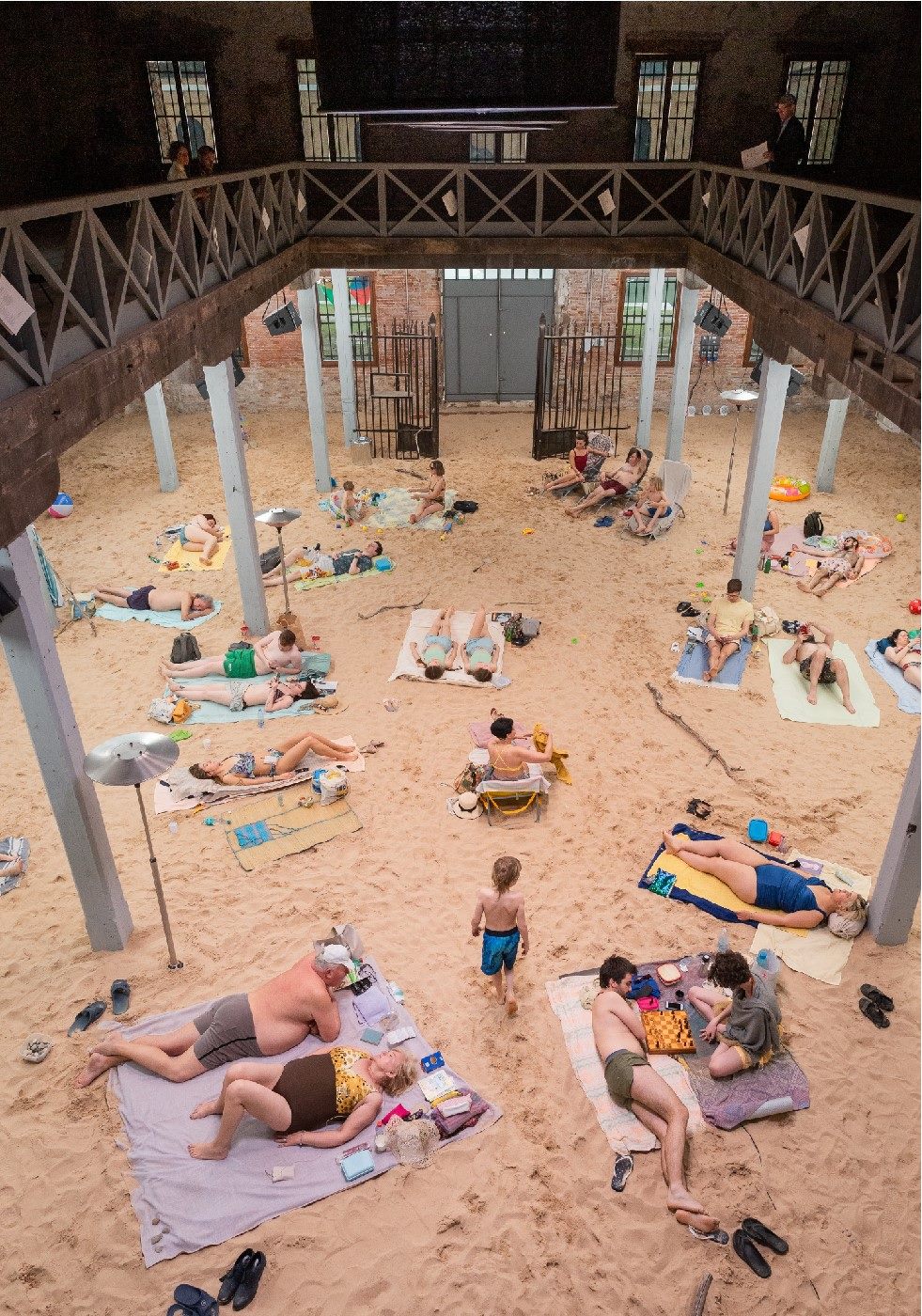 Photo: Sun & Sea (Marina), opera-performance by Rugile Barzdziukaite, Vaiva Grainyte, Lina Lapelyte at Biennale Arte 2019, Venice Photography Andrej Vasilenko, courtesy of the artists
Photo: Sun & Sea (Marina), opera-performance by Rugile Barzdziukaite, Vaiva Grainyte, Lina Lapelyte at Biennale Arte 2019, Venice Photography Andrej Vasilenko, courtesy of the artists Photo: “Falling into Dreams”, courtesy of Studio Acht
Photo: “Falling into Dreams”, courtesy of Studio Acht
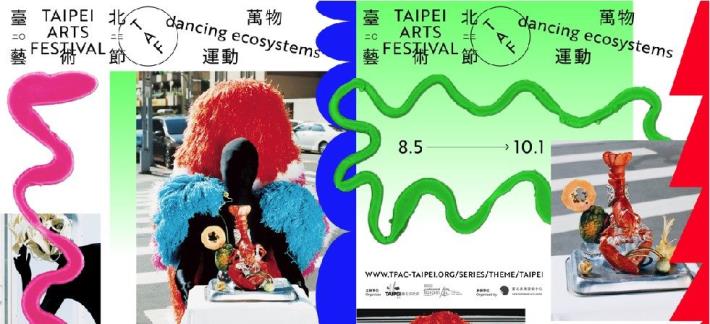
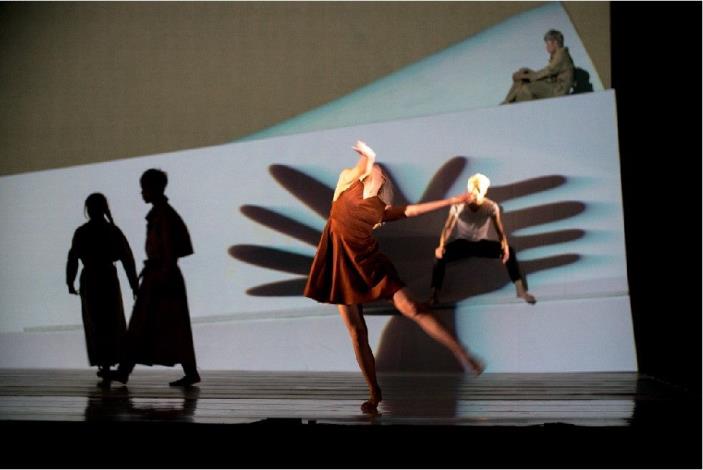
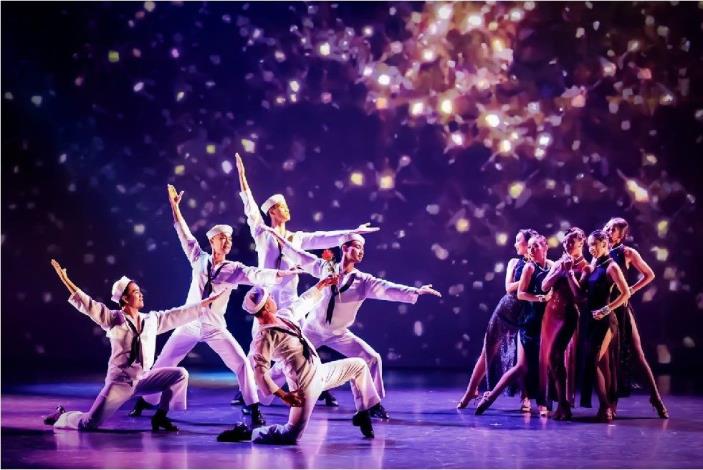
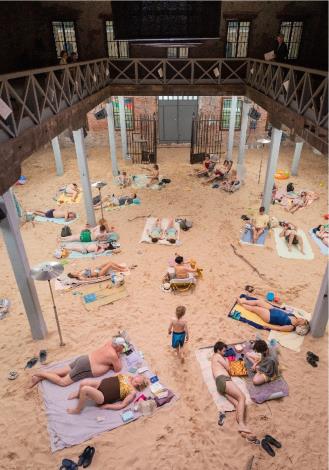
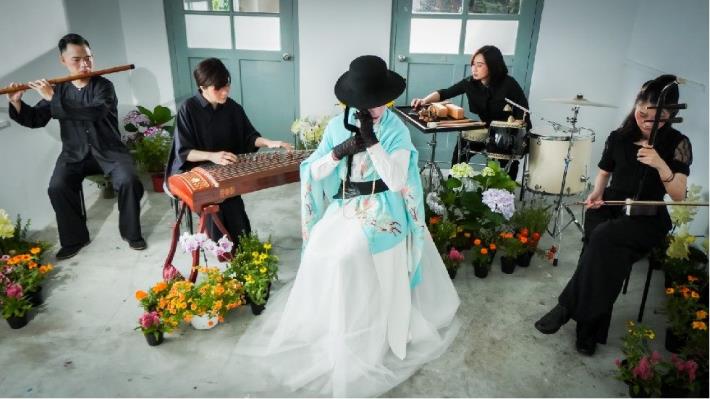

![Taiwan.gov.tw [ open a new window]](/images/egov.png)
